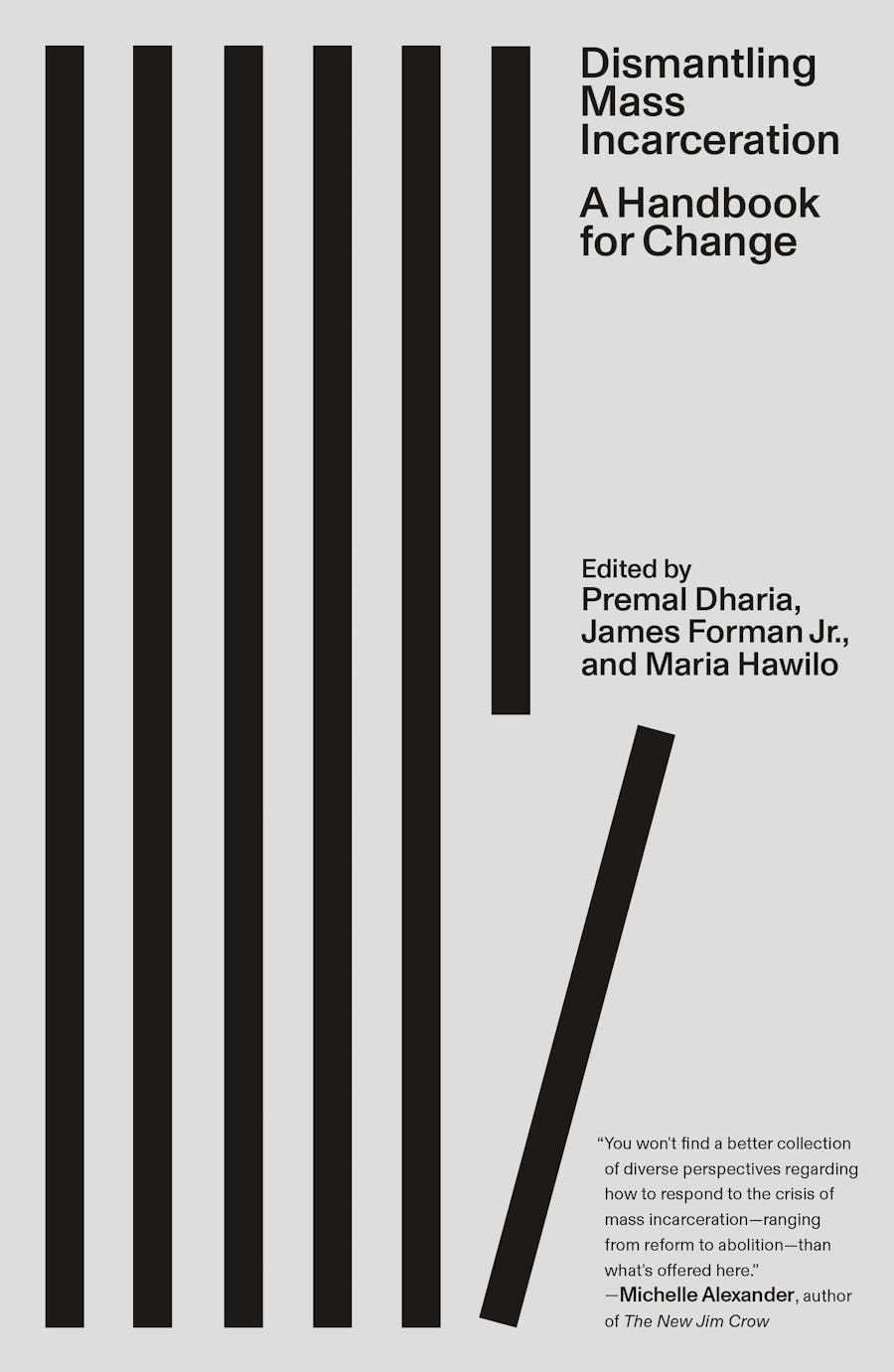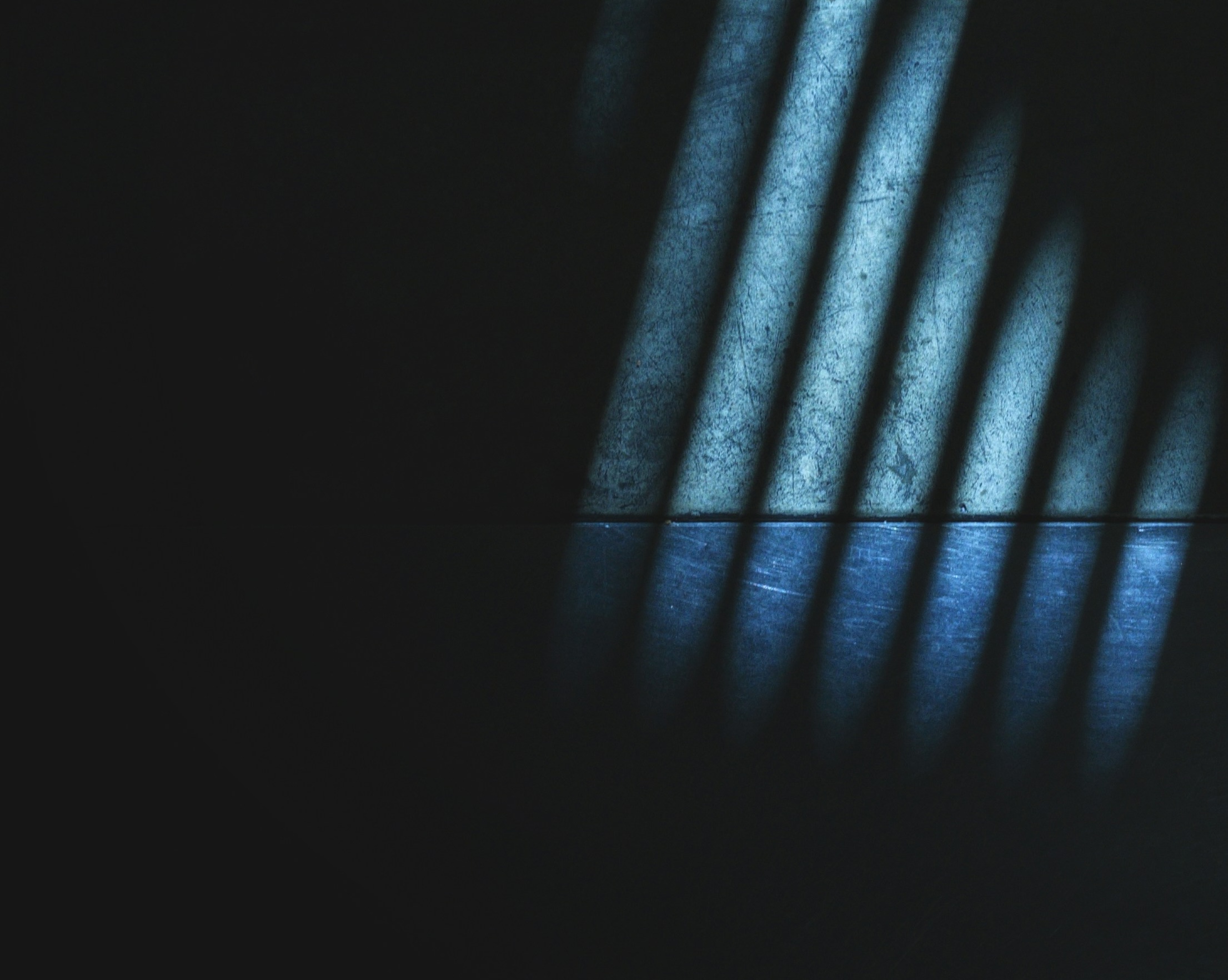Editors’ Note: This article is excerpted from Dismantling Mass Incarceration. In the anthology, the essay introduces the section on the role that prosecutors play in mass incarceration—and could potentially play in ending it. Other sections examine the role of police, public defenders, judges, prisons themselves, and “aftermath,” or the lifetime punishments that continue after release from prison. The essays referenced here are included in this section of the book.
In the popular imagination, lawyers argue each side of an issue, while the judge or jury makes the decision. But when we worked as public defenders, we learned that prosecutors were often the true power brokers: They chose what charges to bring, how much discovery material to provide, and whether to offer a plea bargain. And we believed they often used their authority for ill, standing as barriers between our clients and justice.
What we were seeing was just one small part of a national phenomenon, as criminologist John F. Pfaff explores in Locked In: The True Causes of Mass Incarceration and How to Achieve Real Reform. Pfaff calls attention to the vast, unchecked discretion that prosecutors enjoy in our criminal system. After police make an arrest, prosecutors decide whether to file charges—and courts have repeatedly held that judges lack the power to second-guess this decision.
Roundtable

This is the lead essay in a roundtable about the authors’ coedited collection, Dismantling Mass Incarceration. Read the responses here.
Legislatures have been complicit, largely outsourcing the question of punishment to prosecutors. They’ve done so by criminalizing a wide array of overlapping conduct—a single armed robbery often allows a prosecutor to charge not only armed robbery but also aggravated assault, theft, unlawful possession of a weapon, and so on. One event can thus give rise to dozens of charges, any of which the prosecutor can choose to bring or not. Because the maximum penalties for each offense are often severe, prosecutors can use them as cudgels to force a guilty plea: Instead of going to trial and risking a draconian sentence, defendants feel tremendous pressure to plead guilty to a lesser offense. And plead they do: Data show that 98 percent of people charged in federal court pled guilty in 2020, with the percentages in state court not far below.
What does the Supreme Court think of this? In Bordenkircher v. Hayes (1978), it essentially gave prosecutors free rein to wield their discretion as they see fit. In Bordenkircher, Paul Hayes was indicted for forgery amounting to $88.30. The prosecutor offered Hayes a five-year prison sentence if he pled guilty. But if Hayes refused, the prosecutor threatened to charge him as a habitual offender, which carried a possible term of life imprisonment. Hayes rejected the deal, was convicted at trial, and was sentenced to life in prison. On appeal, the Supreme Court denied that the prosecutor’s threat of life imprisonment was “vindictive” and approved the arm-twisting that resulted in Hayes’s life sentence. This “trial penalty,” where prosecutors seek higher sentences at trial to deter people from demanding one in the first place, has become commonplace. Indeed, sentences imposed at trial are 64 percent longer than those imposed through pleas.
Finally, prosecutors are rarely held accountable by voters. This may come as a surprise, since head prosecutors—unlike chief public defenders, many judges, and police officials—are largely elected officials in the United States. In fact, we are the only country that elects them. Yet many of these elections are uncontested. Between 2012 and 2017, of the more than 2,300 jurisdictions that elect their prosecutor, fewer than 700 presented voters with more than one candidate. This lack of choice was even more extreme when the incumbent prosecutor ran for reelection—incumbents ran unopposed 75 percent of the time.
This noncompetitive electoral system has produced a homogeneous set of prosecutors. A 2019 study by the Reflective Democracy Campaign revealed that 95 percent of our country’s prosecutors are white and 76 percent of them are male. When viewed in the context of who is being prosecuted, these numbers illustrate devastating, foundational truths about our criminal legal system: Black Americans are incarcerated in state prisons at nearly five times the rate of white Americans, and in twelve states, more than half the prison population is Black. A study of Manhattan criminal cases from 2010 to 2011 also found that Black people were 19 percent more likely to be offered plea deals that included jail time.
Decarceral thinkers and doers
Every week, Inquest aims to bring you insights from people thinking through and working for a world without mass incarceration.
Sign up for our newsletter for the latest.
Newsletter
This description of prosecutors—powerful, punitive, unchecked—has been true for so long that many people felt it would never change. Writing as recently as 2017, Pfaff lamented, “For all their power, prosecutors are almost completely ignored by reformers.”
Then things started to shift. In 2016 insurgent candidates in a diverse set of cities and counties—including Denver, Chicago, and St. Louis—challenged incumbent prosecutors. Rejecting the typical punishment-first rhetoric that had long dominated such races, they campaigned on promises to charge fewer children as adults, not to prosecute certain drug cases, and to rarely (or never) seek the death penalty. These long-shot candidates attracted little national attention—until the votes were counted. Once they were, it was clear that a new movement had launched: “progressive prosecution.”
The definitive book on this topic is Emily Bazelon’s Charged: The New Movement to Transform American Prosecution and End Mass Incarceration. Bazelon tells the story of Justice Sonia Sotomayor, who grew up in a housing project in the Bronx and began her legal career in the Manhattan district attorney’s office. While she loved her five years as a prosecutor, Sotomayor came away from the work thinking that, as she put it, the criminal justice system “accomplishes nothing we think of as its purpose.” Although Sotomayor practiced in an earlier era, she learned some of the same lessons that animate today’s progressive prosecutors. Bazelon calls the movement to elect such prosecutors “the most promising means of reform I see on the political landscape.”
Law professor Angela J. Davis chronicles the emergence of this strategy in “Reimagining Prosecution: A Growing Progressive Movement.” She links its origins to the Black Lives Matter movement, explaining that “the police killings of unarmed [B]lack men in recent years served to educate the public about the power of prosecutors and their central role in the criminal process.” When prosecutors refused to bring charges against police officers in these cases, voters gained a new understanding of the biases so many prosecutors brought to their roles. As a result, they were motivated to elect prosecutors who shared their values.
While she embraces the progressive prosecutor movement, Davis also recognizes that it can be difficult to determine what makes a prosecutor “progressive.” At a minimum, she says, such prosecutors must be “committed to reducing mass incarceration and racial disparities in the criminal justice system.” But Davis rejects a strict litmus test. She argues that we must recognize that a “District Attorney attempting to implement criminal justice reform in Columbus, Mississippi, cannot run on the same platform as a District Attorney in Philadelphia, Pennsylvania, because Mississippi is much more conservative and the electorate would likely not be as receptive to radical changes.”
Still, it is worth considering the potential for real democratic intervention in this field. Across the country in the last few years, some prosecutors have established policies eliminating or limiting the use of cash bail, refusing to charge sentencing enhancements that increase prison time, reopening old cases for “second looks” and exonerations, refusing to seek the death penalty, investigating police misconduct, and reducing incarceration rates. While these reforms do not turn the function of prosecution on its head, they are meaningful steps by actors uniquely positioned to take them.
For a concrete example of a prosecutor seeking change, we highlight the policy memorandum that Philadelphia district attorney Larry Krasner issued upon taking office in 2018. The memo opens with this remarkable statement by a chief prosecutor: “These policies are an effort to end mass incarceration and bring balance back to sentencing.” The memo then identifies concrete measures to achieve that goal, such as requiring courtroom prosecutors to explain—on the record and in every case—how much a prison sentence will cost taxpayers and why they believe that cost is justified. Requiring prosecutors to defend the cost of a prison sentence is so striking because, in our experience, prison is taken for granted in most sentencing hearings. It never has to prove its worth. Forcing it to do so, as Krasner does, has the potential to permanently alter sentencing narratives.
Since the release of Krasner’s memo, the conversation about how progressive prosecutors should combat mass incarceration has only attracted more voices, not all of them supportive. Reform-minded prosecutors have been met with resistance by other system actors—including some within their own offices—wedded to our current system of prosecution and punishment. Pennsylvania legislators circumvented Krasner’s office by empowering the attorney general to prosecute gun cases in Philadelphia. In San Francisco, the police union spent over $650,000 on ads opposing reformer Chesa Boudin’s election—and in 2022 he was recalled by city voters.
Black women have encountered especially fierce resistance from the rest of the system. For example, the Florida legislature slashed $1.3 million from the budget of Orlando’s reform prosecutor, Aramis Ayala, when she refused to seek the death penalty. In Chicago, Cook County state’s attorney Kim Foxx announced that she would not seek a third term after spending her first two working to free the wrongfully convicted and shrinking prosecutions of minor offenses. A local judge there had appointed a special prosecutor to review her decision-making in one high-profile case; she also faced persistent criticism by law enforcement for her reform efforts. And in St. Louis, Kim Gardner resigned in the wake of a proposed bill in the Missouri state legislature that would allow a special prosecutor to be appointed in lieu of her office in any case involving a “threat to public safety.” All of these prosecutors also experienced racist and sexist harassment, including death threats.
This blowback against reform-minded prosecutors hasn’t been universal, however. Indeed, the women above were all voted into office, some for more than one term. In 2020 voters reelected Krasner in the Democratic primary with even higher margins than before. Communities facing high rates of gun violence overwhelmingly supported his campaign.
In 2021 ACLU attorneys Taylor Pendergrass and Somil Trivedi published an article arguing that change-making prosecutors should jettison the mantle “progressive” in favor of “transformational.” In their view, transformational prosecutors should pledge to decarcerate, adopt a stance of radical transparency with respect to their data and charging policies, and champion legislative reforms that advance decarceration. They argue that prosecutors should commit to shrinking the legal system—including the role of the prosecutor itself.
Very few prosecutors have done what Pendergrass and Trivedi suggest. Even progressive prosecutors have avoided going before a legislative body to request a smaller budget. Few have supported laws requiring prosecutors to open their files to the defense. But such steps are required if reform-minded prosecutors hope to make lasting change, argues Rachel Barkow in “Can Prosecutors End Mass Incarceration?” It’s not good enough, says Barkow, for a prosecutor to say, “Give me more money, I’ll use it for diversion programs and other alternatives to prison.” After all, even if their intentions are pure, once they leave office, they are powerless to stop their successor from using those funds to lock up more people.
Others have been more critical of the progressive prosecutor movement. “Abolitionist Principles and Campaign Strategies for Prosecutor Organizing,” a guide published by a group of contributors including Community Justice Exchange, argues that some reform-minded prosecutors have begun to develop cults of personality. By claiming credit for all meaningful changes in a community’s justice system, these prosecutors end up reinforcing the view that prosecutors must remain central to reform efforts. In response, the authors call for a careful analysis of policies to see whether prosecutors are actually decriminalizing, decarcerating, and working to reduce their own role and power in the system.
One of the most resounding critiques comes from Paul D. Butler, who addresses a question that many law students ask as they contemplate their careers: If a young lawyer seeks to make our criminal system more just, should they work in a prosecutor’s office? In “Should Good People Be Prosecutors?” Butler, a former prosecutor himself, does not hedge in his answer: a resounding no. At the end of the day, he argues, a prosecutor’s main function is to criminalize, prosecute, and punish.
Becoming a prosecutor to help resolve unfairness in the criminal justice system is like enlisting in the army because you are opposed to the current war. It’s like working as an oil refiner because you want to help the environment. Yes, you get to choose the toxic chemicals. True, the boss might allow you to leave one or two pristine bays untouched. Maybe, if you do really good work as a low-level polluter, they might make you the head polluter. But rather than calling yourself an ‘environmentalist,’ you should think of yourself as a polluter with a conscience.
In the Inquest forum discussion for which this essay serves as opening, we invited contributors to reflect on the role that prosecutors might play in ending mass incarceration. We encouraged them in particular to consider the following questions: Is addressing the role of prosecutors among the most effective means of dismantling mass incarceration? If so, is electing reform-minded prosecutors a productive path or does it merely entrench and legitimize the system that produced the problem in the first place? Instead of elevating and supporting progressive prosecutors, should we work to limit the power of prosecutors altogether? Or can we pursue multiple paths at once?
Excerpted from Dismantling Mass Incarceration: A Handbook for Change, edited by Premal Dharia, James Forman, Jr., and Maria Hawilo. Published by Farrar, Straus and Giroux. Introduction, part introductions, and conclusion copyright © 2024 by Premal Dharia, James Forman, Jr., and Maria Hawilo. All rights reserved.
Image: Martin Adams/Unsplash



